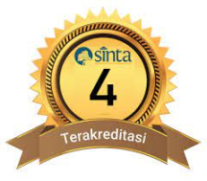META ANALYSIS OF THE INFLUENCE OF INQUIRY LEARNING MODEL ON STUDENT LEARNING OUTCOMES IN PHYSICS AND JUNIOR HIGH SCHOOL SUBJECTS
Abstract
Full Text:
PDFReferences
Mulyasa.2007. Menjadi Guru Profesional; Menciptakan Pembelajaran Kreatif dan Menyenangkan. Bandung: Rosdakarya
Wena, Made. 2009. Model Pembelajaran Inovatif Kontemporer (Suatu Tinjauan Konseptual Operasional). Penerbit Bumi Aksara. Jakarta
Ades, Sanjaya.2017.Model-model PembelajaranBumi Aksara.Jakarta.
Trianto.(2007). Model-model Pembelajaran Inovatif Berorientasi Kontruktivis.Jakarta : Prestasi Pustaka
Jihad dan Haris. 2010. Evaluasi Pembelajaran. Yogyakarta:Multi Presindo.
Purwanto. 2010. Evaluasi Hasil Belajar. Yogyakarta: Pustaka Pelajar.
Purwanto.(2009). Evaluasi Hasil Belajar. Yogyakarta: Pustaka Belajar.
Dimyati, Midjiono. 2006. Belajar dan Pembelajaran, Jakarta: Rineka Cipta.
Rievan Dana Nindrea, Pengantar Langkah-Langkah Praktis Studi Meta Analisis, (Yogyakarta: Gosyen Publishing, 2016), cet.1, h. 9
Higgins J, Thompson, S.G., Deeks, J.J., & Altman, D.G,. 2003. Measuring inconsistency in meta-analys
Sugiyono, 2012. Metode Penelelitian Kuantitatif, Kualitatif dan R&D. Bandung: Alfabeta Sugiono,2012
Sugiyono, 2017. Metodelogi Penelitian Pendidikan Kompetensi. Bandung: Alfabeth
DOI: http://dx.doi.org/10.24036/12628171074








